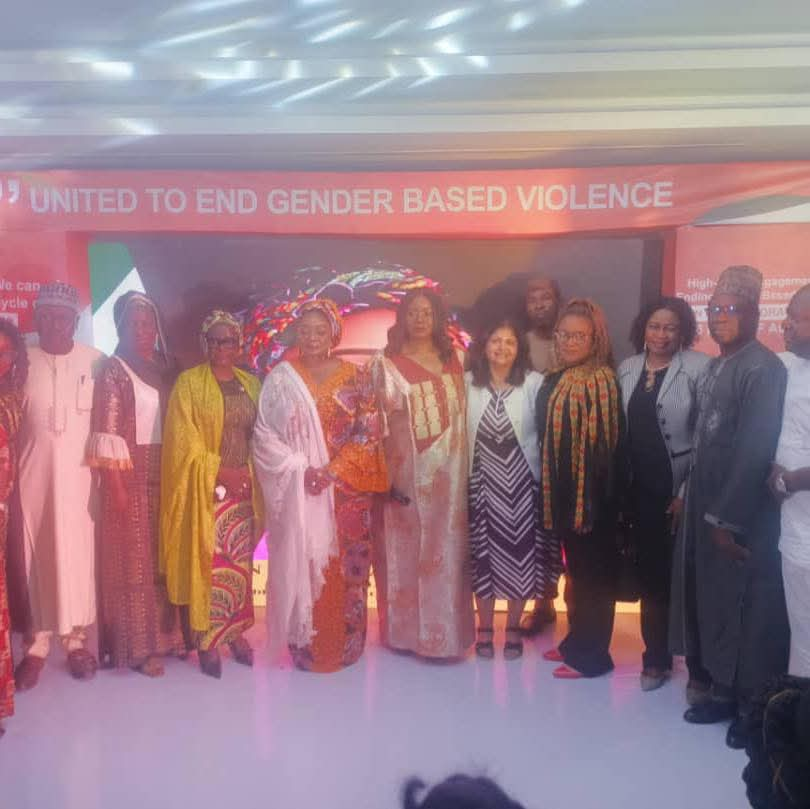The Federal Ministry of Women Affairs has restated the Federal Government’s commitment to ending all forms of Gender-Based Violence (GBV), including the fast-growing threat of digital violence against women and girls.
The Ministry made the pledge during a high-level engagement held to mark the national launch of the 2024 global 16 Days of Activism Against Gender-Based Violence, themed “UNiTE! End Digital Violence Against All Women and Girls.”
In her keynote address, Minister of Women Affairs and Social Development, Hajiya Imaan Sulaiman-Ibrahim, said Nigeria stands at a critical point in its fight against violence targeting women and girls.
She described GBV as “one of the most pervasive human rights violations in the country,” stressing that coordinated and strategic action is urgently needed.
“We must not allow this moment to be defined by statistics, but by the decisive actions we take now to protect women and girls wherever they live—online or offline,” she said.
The Minister expressed concern over recent mass abductions of women and girls, conflict-related abuses, and persistent impunity, which she noted continue to threaten national stability and the safety of women.
She referenced NDHS 2018 data showing that 28% of Nigerian women aged 15–49 have experienced physical violence, 40% emotional violence, and 7% sexual violence, alongside a 149% surge in reported GBV cases during COVID-19—while national conviction rates remain below 5%.
Despite these challenges, she highlighted signs of progress from NDHS 2024, which recorded declines in child marriage (42%) and female genital mutilation (18%). She reaffirmed the Ministry’s commitment to expanding gains through the Renewed Hope Social Impact Intervention Programme (RH-SIIP-774).
Sulaiman-Ibrahim announced new investments in survivor-centered services, digital empowerment initiatives, specialised gender courts, safe spaces, and the establishment of a national GBV Emergency Response Fund.
“Survivors remain at the heart of Nigeria’s response,” she said. “Their courage drives our determination to deliver justice, dignity, and protection for all women and girls.” She added that Nigeria aims to build a nation where every woman and girl is safe, empowered, and able to reach their full potential.
Earlier, Permanent Secretary Dr. Maryam Ismaila Keshinro pledged the Ministry’s commitment to strengthening coordination and ensuring that national commitments translate into measurable results.
She stressed the importance of collaboration, evidence-driven dialogue, and shared ownership in delivering lasting change.
Representing Women for Women International and the Malala Fund, Nabila Aguele highlighted the global scale of GBV, noting that one in three women worldwide will experience violence in their lifetime, with Nigeria accounting for 10% of survivors.
She emphasized that GBV is not inevitable but a deliberate tactic used to silence women. Aguele highlighted the importance of girls’ education in reducing GBV and praised the leadership of Ms. Thelma Ekiyor, newly appointed International CEO of Women for Women International.
She also shared a testimony from WfWI trainer Tami Wophill, who said that increased awareness of women’s rights is already reducing violence in some communities.
UNDP Resident Representative Ms. Elsie Attafuah drew attention to the rapid expansion of Nigeria’s digital economy and the corresponding rise in technology-facilitated violence.
She warned that “Nigeria’s digital future cannot coexist with digital harm,” urging stronger digital safety systems, modernized legal frameworks, and protection for women and girls participating online.
The event, organised in partnership with Women for Women International and UNDP, sets the stage for national activities during the 16 Days of Activism and reaffirms Nigeria’s resolve to build a safer, more inclusive society for all women and girls.





